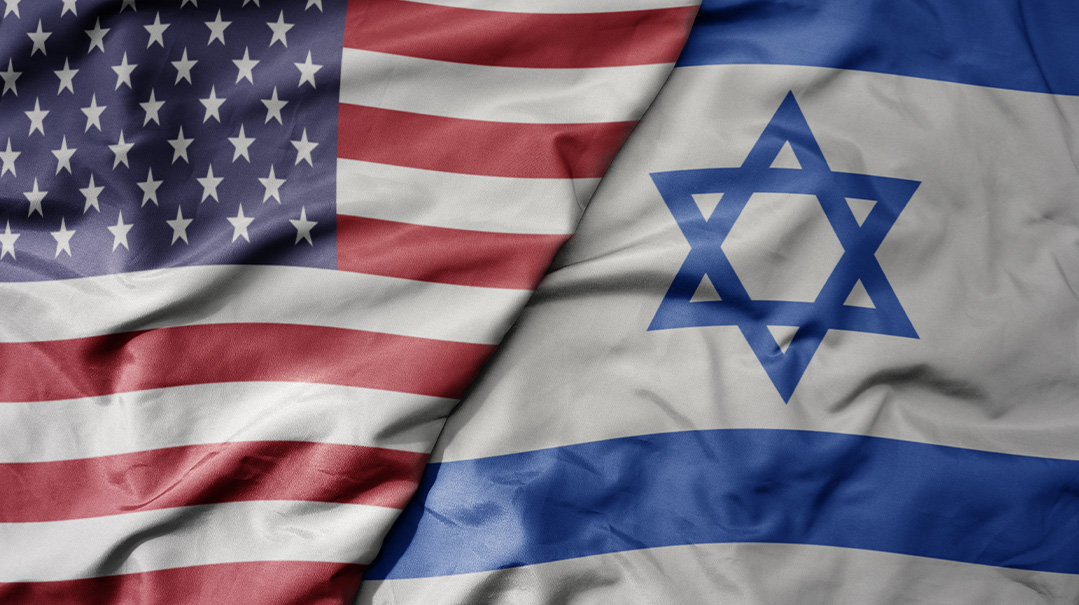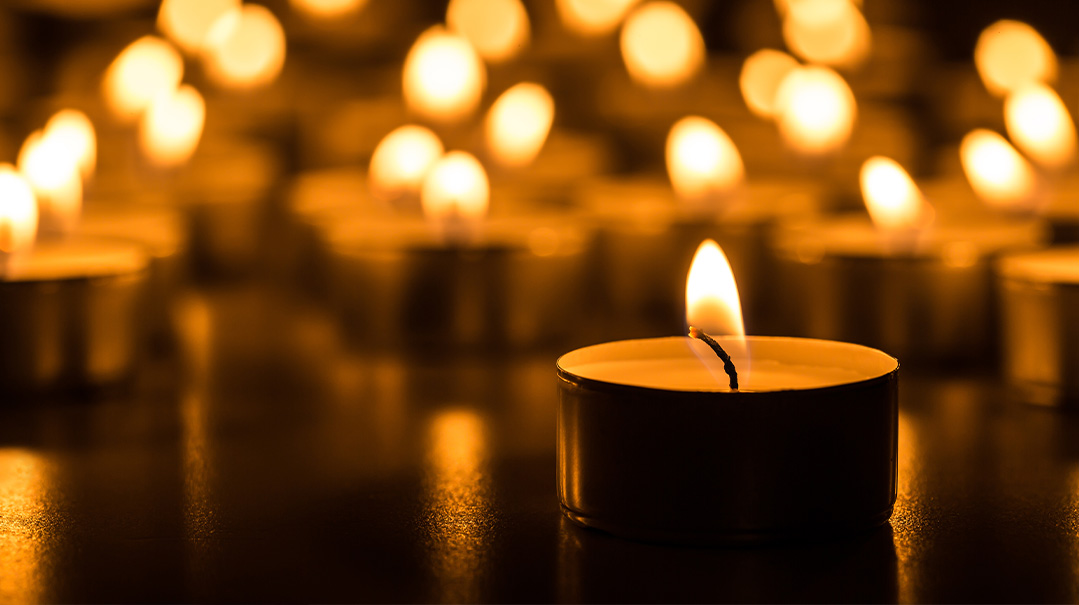Jewish Privilege Is Real

Class — not race — is the crucial dividing line with respect to privilege
T
eaching white Americans about their “white privilege” is becoming a major industry. Last year, for instance, Sandia National Laboratories, which works primarily on designing nuclear weapons for the government, provided several days of anti-racism training for its white executives. The trainers helped the executives expose the “roots of white male culture,” which consists of “rugged individualism,” “a can-do attitude,” “hard work,” and “striving toward success,” all of which, the executives were informed, is “devastating” for women and people of color.
I suspect that eschewing “hard work” and a “can-do attitude” will not do much for Sandia’s bottom line. Nor is it clear how the reeducation of their white colleagues will help black executives.
President Trump recently issued an executive order banning government monies being spent on the teaching of critical race theory. But that order will surely be rescinded if Trump loses, and, in any event, it will continue to be taught on a large scale in corporate America.
And what is critical race theory (CRT), for the non-cognoscenti? Here is how advocates describe it: “CRT recognizes that racism is ingrained in the fabric and system of American society.... CRT identifies that these [existing] power structures are based on white privilege and white supremacy, which perpetuates the marginalization of people of color. CRT also rejects the traditions of liberalism and meritocracy. Legal discourse says that the law is neutral and color-blind; however, CRT challenges this legal ‘truth’ by examining liberalism and meritocracy as a vehicle for self-interest, power, and privilege.”
CRT is pernicious both for society and for the “victims” it seeks to rescue. For one thing, it is empirically flawed. Numerous groups of people of color in the United States, including Caribbean blacks and black immigrants from sub-Saharan Africa, have median incomes in excess of white Americans.
Second, class — not race — is the crucial dividing line with respect to privilege. Indeed, affirmative action, which primarily benefits middle-class blacks, especially in university acceptances, privileges blacks over similarly situated or poorer whites.
Third, I fear for a society in which doctors and scientists are selected on non-meritocratic criteria. Fourth, the alternative to liberalism, in its traditional sense, is a totalitarian society in which only certain opinions may be heard. We are fast arriving at that point.
Fifth, the portrayal of all social relations as zero-sum power games, in which one group’s advance can only come about through another group’s decline, ensures perpetual bitterness in the body politic. And finally, the emphasis on victimhood destroys those whom it is designed to help.
BUT IT WOULD BE silly to claim that privilege does not exist, even if “whiteness” is not the primary determinant. Growing up in an affluent Chicago suburb, with two loving parents, I enjoyed life prospects that were obviously brighter than those of young black males growing up in the Cabrini Green projects, in a female-headed household.
Yes, I worked hard academically, but it was always with the knowledge that if I did, rewards would follow — at least in terms of college and law school admissions. The odds of my being cut down by stray gunfire from gang warfare walking to school or playing pickup basketball were vanishingly small. Not so for a high school valedictorian on the South Side of Chicago.
Though I was the child of privilege, it had not been ever thus in our family. When my Slonim-born grandfather entered Harvard, he weighed only 85 pounds, and had a hard time convincing the authorities that he was not tubercular. He had to work 40 hours a week through college, while graduating in three years. White privilege had little to do with his success.
But I’m not entitled to deny my own privilege because of his lack of it. And to do so would put me in the category of those “born on third base who think they hit a triple.” It would be both stupid and ungrateful.
Certainly no Jew should ever deny that some are born privileged. For we are the inheritors of the greatest possible privilege — to be born Jewish — not on account of anything we personally did, but because of what our ancestors did at Sinai over 3,000 years ago.
Our privilege is a particular closeness to Hashem, Who has chosen us from among all the nations to be His primary partners in bringing Creation to its fulfillment. Besides being explicit in many places in Torah, that closeness is inherent in every mitzvah we perform: Mitzvah is derived from the language of צוות (joinder), and hints to the connection between the commander and commanded.
It is incumbent on every member of Klal Yisrael, Rav Chaim of Volozhin says, “to understand, and know, and to fix in his every thought, that every single one of his actions, his speech, his thoughts, at every moment, does not go to waste. How great are his actions, and how elevated, such that they rise above and have their impact in the upper worlds, according to their roots below” (Nefesh HaChaim I:4).
To reflect upon that power that inheres in our every deed should fill us with joy and excitement. That is the true simchah shel mitzvah.
True, the responsibility that goes with our unique relationship with HaKadosh Baruch Hu is very great, and the punishment for abrogating that responsibility, whether as individuals or as a community, severe. But that does not take away from the joy and gratitude that goes with the privilege of having the potential to affect the highest realms, and thereby bring blessing to this world, by virtue of being born Jewish.
At no time of the year is our special closeness to HaKadosh Baruch Hu felt so intensely as during Succos. The succah reminds us of the Clouds of Glory, in which HaKadosh Baruch Hu enveloped and protected us, in the Desert, out of His great love for us.
May we all merit to experience the unique simchah of the Chag that comes with that awareness of Hashem’s closeness — v’samachta b’chagecha.
What Would We Do Without Experts?
The best argument against meritocracy is not white privilege. Rather it is the continuous stream of dunces that our elite universities produce. I doubt that there are too many dumb astrophysicists, but in the realm of the social sciences, politics, and media, one encounters an overflow of highly credentialed fools.
The signing of the Abraham Accords by Israel, the United Arab Emirates, and Bahrain serves as a useful reminder of the failure of our chattering classes. The Washington Beacon put together an amusing clip to go with the signing of various “wise men and women” warning of what would happen if President Trump moved the American embassy to Jerusalem.
“You’d have an explosion, an absolute explosion,” warned former secretary of state John Kerry sonorously. Doing so will kill any hope of peace forever, pronounced another wise woman. Thomas Friedman fretted that the Sunni kingdoms would be humiliated.
The embassy moved, and nothing happened, as President Trump predicted.
With that move, Trump sent the Palestinians a clear message: Time is not on your side. You are being left behind. The Abraham Accords reinforces that message in spades. The treaty contains nary a sop to the Palestinians.
For a half century, American policymakers have viewed solving the Palestinian-Israeli conflict as the key to regional peace and stability, in the face of overwhelming evidence to the contrary. The bitter Iran-Iraq War forty years ago, Saddam Hussein’s invasion of Kuwait, Arab Spring, the rise of ISIS — all had nothing to do with Israel.
Nor could the deformities of the Arab world be attributed to Israel. Arab regimes did not fail to modernize or to wean themselves from dependence on oil revenues to spite Israel, though their backwardness certainly made them hate Israel more. With the emergence of a new generation of Gulf leaders eager to modernize their societies, peace with Israel has followed.
For eight years, President Obama bizarrely pursued a pro-Iranian Middle East policy, which sought to turn the region’s most expansionist, terrorist-supporting, and religiously fanatic regime into a regional hegemon. For good measure, the Obama administration acceded to Iran’s nuclear program and provided the regime with pallets of cash to pursue its regional goals. The only result was to drive the Arab Gulf states and Israel into one another’s arms.
Joe Biden proclaims his eagerness to return to the Iran nuclear deal. The Abraham Treaty has made doing so more difficult by showing that the road to Middle East peace goes through America’s traditional allies — Israel and the Sunni states — and not through Iran and its regional proxies.
Unfortunately, that obvious point will likely be lost on whatever “wise people” run the Biden-Harris administration.
Originally featured in Mishpacha, Issue 830. Yonoson Rosenblum may be contacted directly at rosenblum@mishpacha.com
Oops! We could not locate your form.







